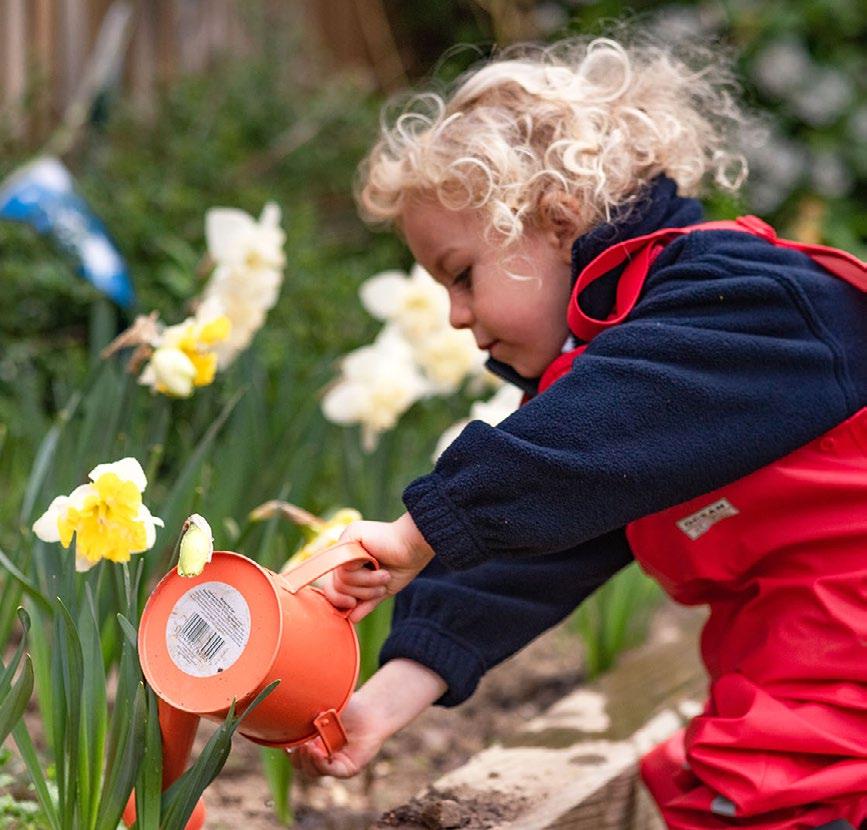
5 minute read
Helping your child prepare for Reception or a new school
It’s May, your school place is confirmed and now is the time to start to prepare your family for the transition into the new setting.
If you have a pre-school aged child heading to Reception in September, these thoughts may be crossing your mind:
How has this time come around so quickly?
How is my child going to be ready for full time school in 3 months?
If your preschooler is your first child, then the questions may be compounded by jargon and unfamiliar expectations, which bear no resemblance to any of the things in place when you were at school.
If your child is older and they are starting a new school, then you might be wondering what you can do to help transition them. After multiple lockdowns, independent schools are seeing an increase in new joiners so if you’ve chosen an independent school, there may be further questions especially around the jargon!
Here are my top tips for getting your head around it all and helping your child get on a positive footing in September.
1Accept any offers to visit the school. In Covid times, it has been very difficult to visit schools and although you may have met the school team via virtual events, nothing beats a real in-person visit. Any settling in sessions or induction events are helpful in familiarising your child with the environment. Your child will see what is expected with regards to uniform , get used to seeing bigger crowds of children and get to know the classroom and teachers. At this point it’s important to get excited with your child. Any of your own feelings of uneasiness and wanting to press pause on time to keep your child a ‘baby’ need to be quashed as these will pass to your child. Be the adult and model the approach to the next step in your child’s life.

2Uniform - another way to get excited here. Encourage your child to try it on as many times as they wish. Make it fun and treat it a bit like part of the dressing up box. If you’re at a school where
the uniform is more than a sweatshirt, then you’ll actually have to practise buttons; a good way to get little fingers practising could be to do it against the clock. If this is a daunting prospect for you or your child, some retailers offer some easy velcro-style cheat shirts instead of buttons!
3Holiday clubs - does your child’s new setting offer summer holiday clubs? Again, see this as an opportunity to familiarise your child with a new setting. If your child isn’t in full time nursery, this is a particularly important consideration in helping them build their stamina and staying power for a longer day at school. Some schools transition children into Reception class incrementally. At CCJS we help working parents by starting full time. There may be times where individual plans are needed and timetables are structured to accommodate the busier parts of the term. Attending a part or full day of summer club will increase your child’s stamina for school in September.
4Ask questions and share information – if there is any new jargon that’s unfamiliar, don’t be shy . Ask the school what it means; I can assure you you’re not alone. If you’re joining an independent school, there’s a plethora of words which you may not have encountered before (registrar = admissions person, bursar = finance officer). In all schools, there will be acronyms such as EYFS (Early Years Foundation Stage, which is the nursery and Reception age group), TA (Teaching Assistant), LSA (Learning Support Assistant), SLT (Senior Leadership Team), KS1/2 (age ranges [key stages] in primary schools) and let’s not get started on the year groups and what they mean! Bunch your questions up in an email or ask for a meeting with a member of the school team to ask them. We expect parents to ask questions; we’re ready for them. Similarly, a school is ready for you to share any of your concerns or any information. If your child has separation anxiety, tell the school and they’ll make a plan with you. Don’t forget that schools are in the parenting business. Genuine concerns are always taken seriously.
5Books - my school is a reading school and that doesn’t mean we expect Reception children to be able to read by the time they start school! Reading to children remains an important aspect of family and school life no matter how old a child is. So if you’re not a family that visits the library or shares books, this is the time to get started. Develop and embed reading routines while you have the space and time in the summer. Hand on heart, this will pay dividends.
6Plan ahead - if you are a working parent, you may have already started thinking about how any homework/reading practice will fit into your working pattern. Be creative in looking at your time. If the school expects some support in key words, spellings or reading, consider when your child is most receptive and in the most positive mindset to learn. If they are in the first three years of primary school, then catching them in a good mood will be vital when practising the reading and getting the best out of them. Prioritise the reading practice over anything else. The mornings and before school worked well for me as a working parent, and the most progress was made (and with fewer battles in the process)!
So, don’t think you’re alone in any concerns you may have. Don’t build them up, don’t dwell on them but instead share them and turn your thinking around to reflect the exciting phase upon which your child is about to embark. Good luck to all children starting school or beginning a new school in September.


FFION ROBINSON
Head of Churcher’s College and Nursery School










